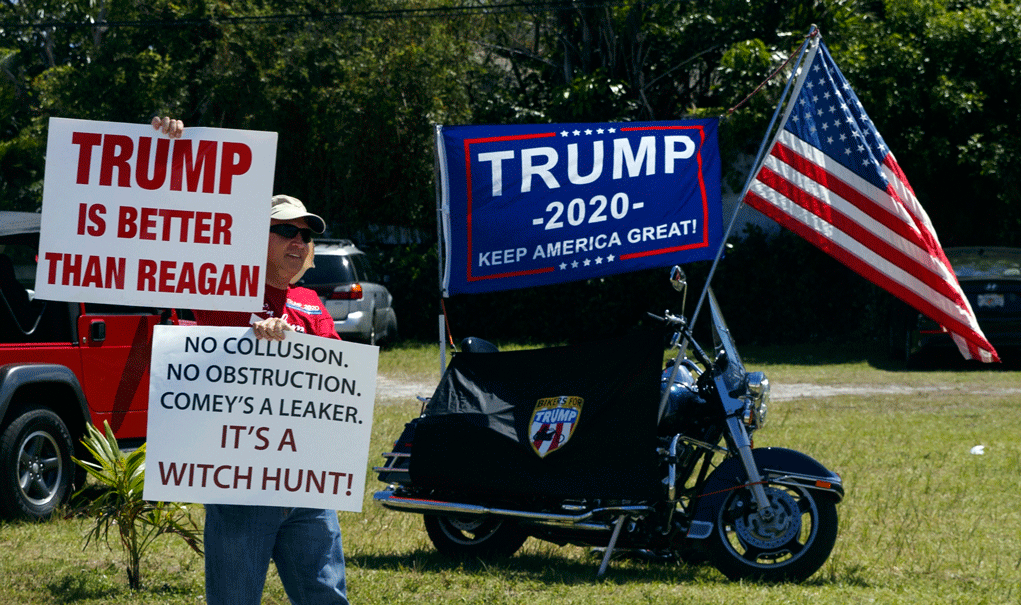There has been a curious hiatus in recent weeks in the media coverage of the various investigations now underway into the suspicious origins of the Trump-Russia conspiracy hoax. The probes are being led by unflappable Attorney General William Barr, formidable federal prosecutor John Durham and the widely respected Inspector General of the Justice Department, Michael Horowitz.
There is considerable trepidation in Washington establishment circles over what these investigations will uncover, because the findings are likely to damage the reputations and possibly incriminate a variety of former senior officials in the Obama administration, the FBI and other national intelligence agencies. They were participants in the pro-Clinton-inspired conspiracy to frame Donald Trump on false charges of conspiring with the Russians ahead of the 2016 election. After Trump’s election, these same individuals engaged in a second conspiracy to cover up the first one, by stonewalling and slow-walking responses to legitimate congressional inquiries and journalistic investigations trying to get at the truth.
The Mueller report was part of that second conspiracy, by repeating the official whitewashed narrative of how the Trump-Russia investigation got started. The report scrupulously avoided digging into the dark origins of the notorious Steele dossier and its key role in framing Trump, based on false charges from Russian sources, and in guiding the direction of the subsequent FBI and Mueller investigations.
The shortcomings of the Mueller report, which failed to reach a conclusion on whether Trump was guilty of obstruction of justice, while clearing him of the underlying accusation of illegally conspiring with the Russians, have frustrated congressional Democrats. They had expected Mueller’s report to provide them with the basis for an impeachment procedure against President Trump, and to further the public narrative of Trump’s guilt. Instead, because of the way Barr handled it, the Mueller report did just the opposite, and established Trump’s innocence on the main allegations against him.
In a press conference last month, Mueller made it clear he would prefer not to testify before Congress, and that if compelled to do so, he would have nothing to add to the conclusions already in his 448-page report. But two Democrat committee chairman who had hoped to take a leading role in the impeachment process, Adam Schiff of the House Intelligence Committee and Jerrold Nadler of the House Judiciary Committee, have continued to pressure Mueller to give testimony before their panels, either voluntarily or under subpoena.
This week, Schiff told reporters that Mueller needs to testify “one way or another” before Congress adjourns for the annual August recess. “We need to resolve this [issue] this week, and I hope we will. One way or another, he needs to come in and testify, and time is running out,” Schiff said.
NEW EVIDENCE OF BIAS IN THE ORIGINAL INVESTIGATION
Meanwhile, Trey Gowdy, a respected former Republican congressman who had supported the Mueller investigation, told Fox News that a close reading of the recently released transcript of the FBI interrogation of Trump advisor George Papadopoulos has raised serious questions in his mind about that investigation.
The official FBI narrative claims that a report about a May 2016 meeting between Papadopoulos and Australian diplomat Alexander Downer, in which Papadopoulos spoke about his contacts with Professor Joseph Mifsud, who claimed to have Russian contacts with damaging information on Hillary Clinton, was the trigger for the formal FBI investigation which later was turned over to Mueller.
In May, after Gowdy read a transcript of the still secret interview of Papadopoulos, Gowdy called it a “game changer” suggesting that it contained exculpatory information about Papadopoulos which the FBI subsequently withheld from the FISA court in its application for a search warrant on the Trump campaign.
In his interview this week, Gowdy explained, “I was supportive of [Robert] Mueller. I was supportive of the idea to initiate, to investigate what Russia did, but when I saw this transcript, it actually changed my perspective,” because it revealed a pattern of bias in the FBI’s investigation of the Trump campaign.
“When you have exculpatory information and you don’t share it with the court, when you give two different kinds of defensive briefings to the candidates depending on who you like and who you don’t, then your bias begins to impact the investigation,” he said.
Gowdy believes that the public has a right to see that transcript and other documents, which reveal the politically biased way in which the FBI handled the Trump-Russia investigation and the application for a FISA search warrant to expose the inner workings of the Trump campaign. This is exactly the agenda for William Barr’s investigation, which reportedly has run into stonewalling and delaying tactics from current FBI Director Christopher Wray and his subordinates.
BARR EXPECTED TO REVEAL THE FULL STORY
President Trump anticipated this possibility and publicly instructed every law enforcement and intelligence agency in the federal government to give Barr their full cooperation, and gave Barr the authority to declassify any documents related to the Trump-Russia investigation.
This means that Barr has all the authority he needs to force reluctant agency officials to demand their cooperation in revealing how much of the government conspired against Donald Trump, both as a candidate and as a sitting president.
Barr seems intent to get to the truth and make it public. With the help of prosecutor Durham and IG Horowitz, that process seems likely to play out within a few weeks, revealing the answers to the questions which the anti-Trump conspirators have been trying to avoid for the past two years.








